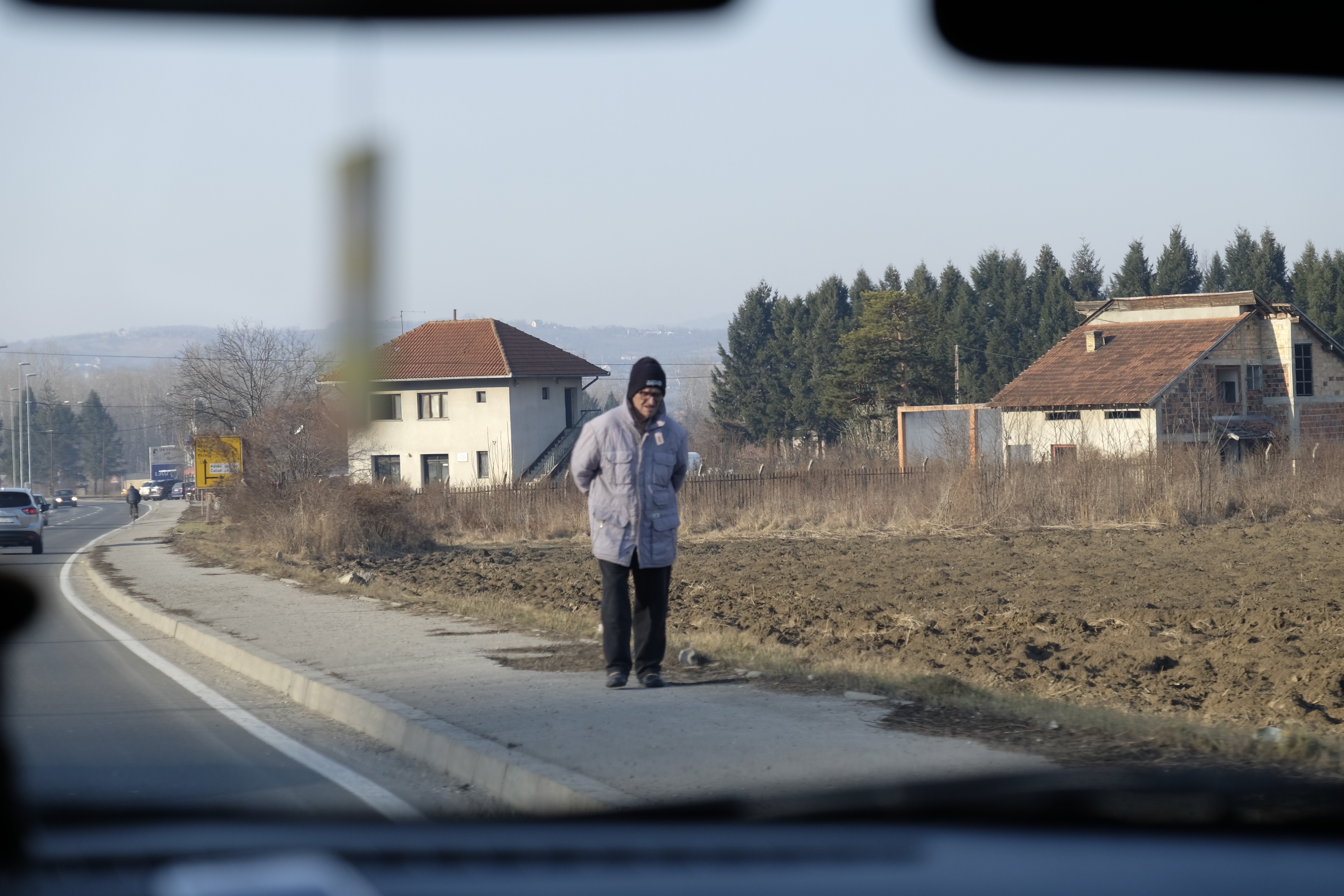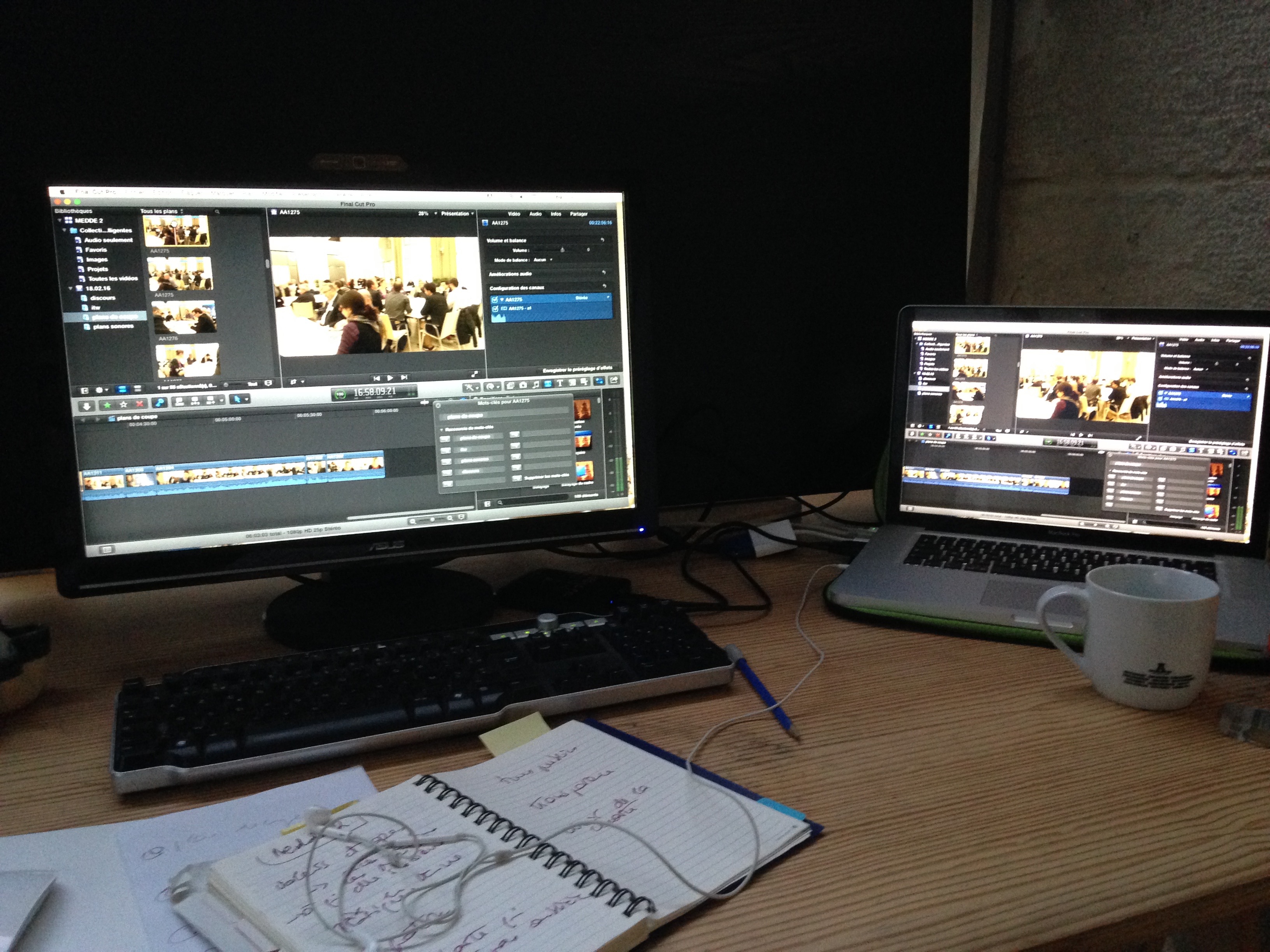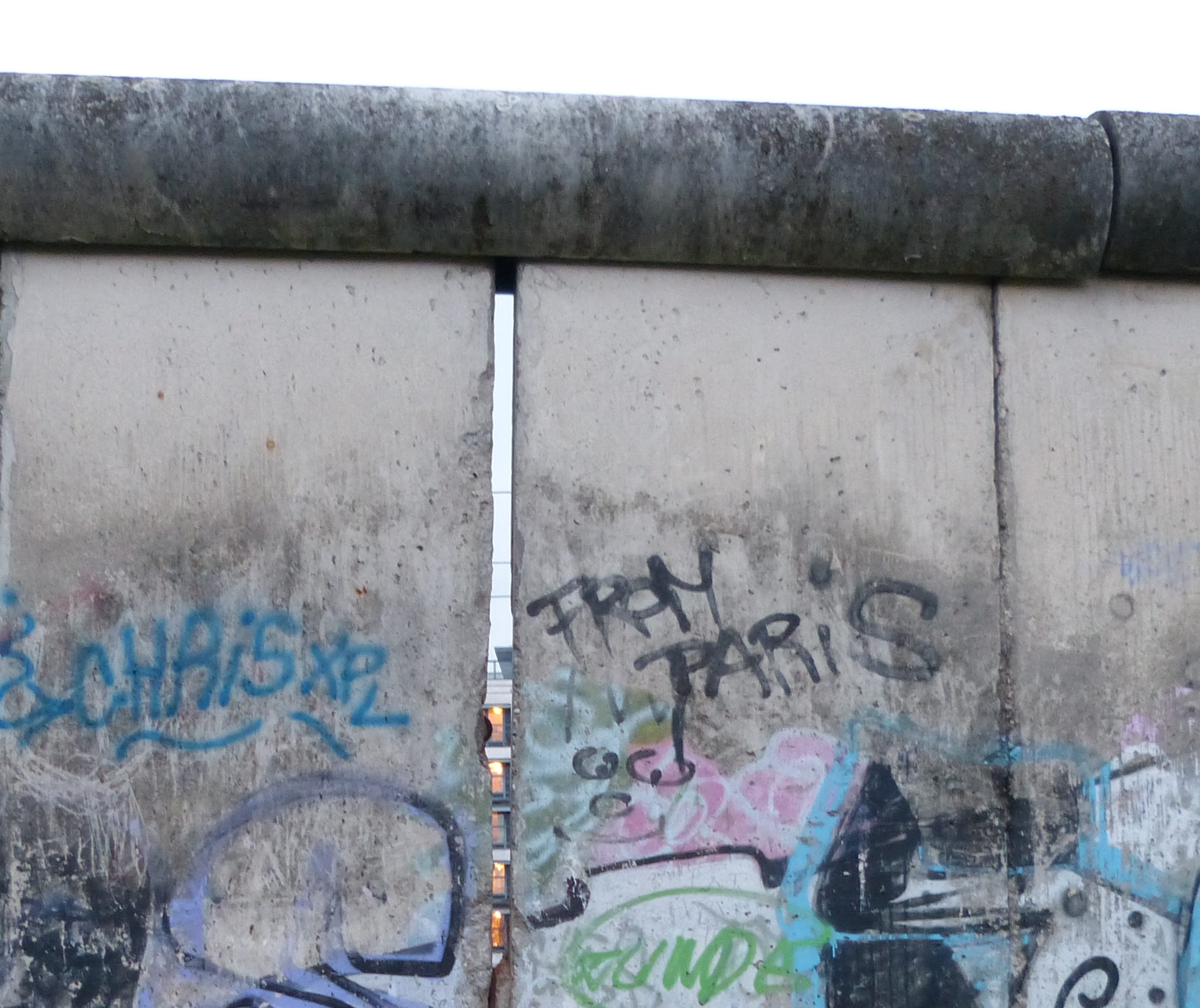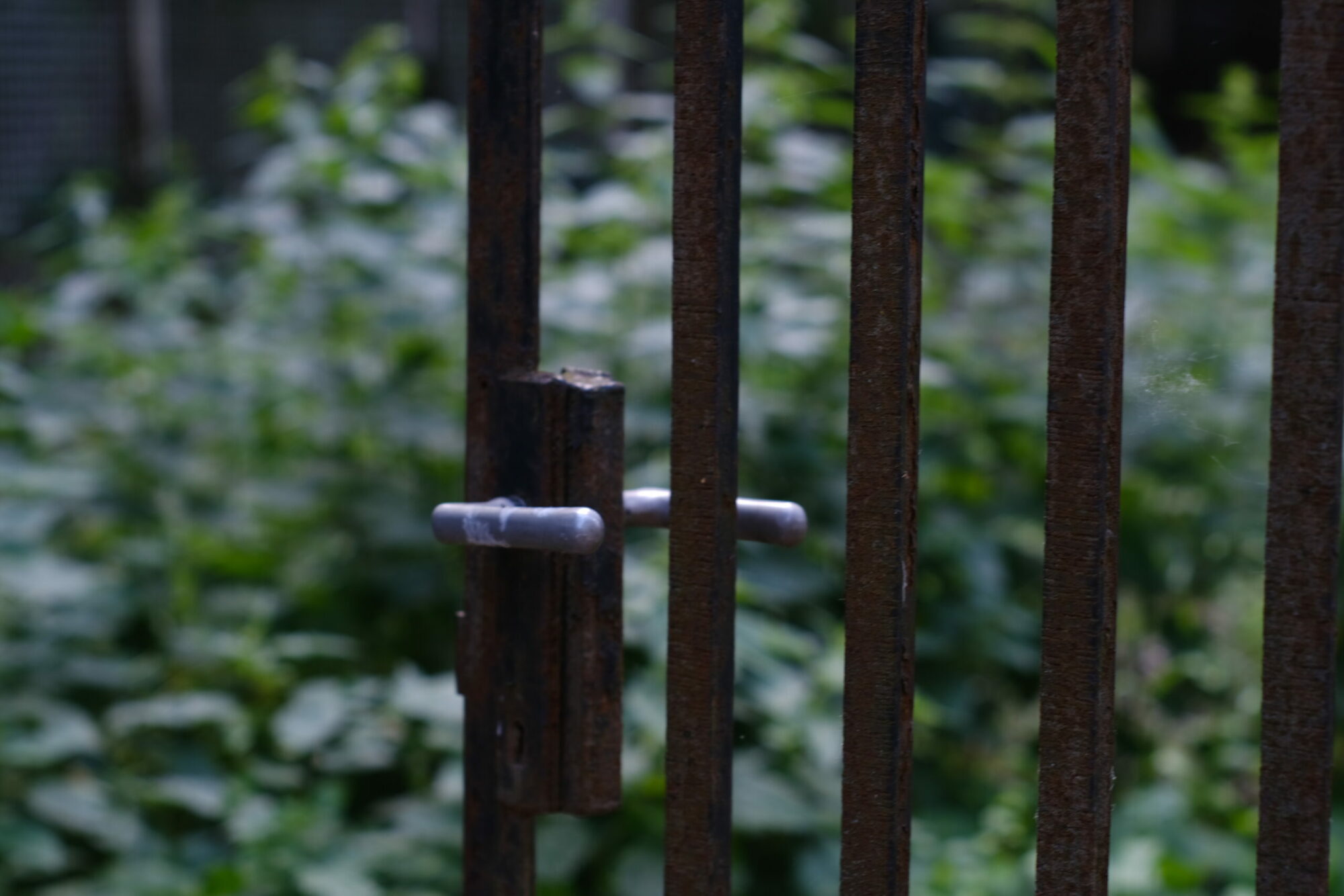In a taxi between Kosovo and Serbia (travel diary, 2013)

It is February. I travel by taxi from Kraljevo, a city in the center of the Serbia, to Kosovo, with Shpresim, an Albanian Kosovar, who works for an NGO. We went together to Serbia for a meeting. Shpresim doesn’t like to go to Serbia. But he does his work with heart and he lets his feelings aside. He is very polite, jovial; he also speaks perfectly French, with a Belgian accent and Serbian-Croatian-Bosnian. He can therefore speak with strangers, whether they are hated neighbors or not. On the way there, border crossings had been complicated: we had to show waivers from the Department of the Serbian Interior which does not recognize Kosovo and so neither its stamps nor passports. We have five hours in front of us. In these extended journeys, informal chatter inevitably initiates. One always ends up speaking more than one would want, carried away by the body that relaxes and the spirit that wanders. Shpresim and Dragan, our Serbian driver, chat. The two men, identified as obvious enemies by the patterns of the wars of the 1990s, progressively exhaust all the usual subjects of two ex-Yugoslavians who do not know each other (it is a fluid sequence, as in a well known partition, movements and breaths followed, without false note but without surprise, it is everywhere the same, regardless of the location in former Yugoslavia or the nationality of the protagonists). The topics of discussion are, in order:
1) football teams, sports, the next games, tournaments, the players, their wages;
2) and it’s hard today, unemployment, life is so expensive, wages are miserable, and pensions, it goes, “my cousin”, “Auntie”, fortunately there is the family abroad who sends us money, politicians them, they do not know the difficulties of life, all corrupt;
3) and it was so much better under Tito: peace, life was beautiful, one lacked nothing, one could go from one end of Yugoslavia to the other, we had a great and beautiful country, and passports, and the ability to travel without a visa, we were so happy.
4) and when I think about the fact that Romania, Romania! (subtext: redneckst!) has entered the European Union before “us” (us, the “Yugoslav”), it is unthinkable.
Usually, after this immutable sequence, which I have heard dozens of times, there is an awkward, lasting, silence that one does not know how to break. Because both know. All consensual topics have been addressed. There’s only one subject that was left unspoken, a big one: the war. Here too, the silence. And then, all of a sudden, Shpresim and Dragan begin to speak, each tells his war with great pain and great gentleness too. Each tells his sadness and his suffering. And they listen to each other. And I am listening too, I have goose bumps, my chest tightens. This is a unique moment. In this old taxi which drives to Mitrovica, on empty and deserted roads, that are nonetheless filled with memories. These 5 hours flew through our fingers. We have already arrived at the bridge of Mitrovica, which symbolizes the division between the North and the South of Kosovo and that no Serbian car ever thinks of crossing – everyone crosses this bridge by foot and steps into another car on the other side. Shpresim said to Dragan, “go ahead, passes through”. We are moving silently on the forbidden bridge and on the other side another cab is waiting for us. It’s a Kosovar Albanian taxi who will lead us to Pristina. We get off the car, Dragan comes out to give us our suitcases, and then Shpresim introduces Dragan to the Albanian driver so that they shake hands and he says simply: “this is Dragan, my friend.” That’s all. No outburst. But an immense emotion. I don’t know if they will meet again, but a gate opened.
Why suddenly the images? (Ateliers Varan, 2011)

How could I explain the birth of the desire to tell a story with the voices and the words of others, me in silence behind the camera? Me who so deeply need to exist, how did I become interested in others, those who are so silent, invisibles, the shadows, the discrete, the shy? How and where did I learn to scrutinize, decipher faces, trying to understand what they don’t tell? And how did I learn to listen to them, to support them in their stories, to encourage them to seek more deeply what they never said? Perhaps, after 15 years of professional experiences in NGOs, the time to tell has simply come. Here are some reasons that lead me to start this new adventure, which I had no idea about until last April. And now that I keep this idea firmly in my hand, it irrigates me with its gentle heat. First, I know is that my family has been deeply traversed by the European conflicts of the twentieth century and I carry them with me. Without going back more than two generations, my grandparents were born in cities that have since changed their name and country: Nagyvàrad / Oradea (Hungary – Romania), Königsberg / Kaliningrad (Germany – Russia) and left these places in painful conditions. My parents also have left, as children, their hometowns for the West (East Berlin to Hamburg for my mother, Budapest to Geneva for my father). And I’m what totalitarian regimes then would have called a ‘Mischlinge’. I’m nothing completely: half-Jewish, half-German, half-Hungarian, French (to the bones, and yet without root here, by accident, and with the feeling that this passport was stolen). I am and will always be half something, sitting on the borders, particularly those that came from conflicts, seeking to step over them and to encourage those who fear to cross them too. I have a strange relationship with identities and I’m allergic to the idea of purity.
What I realized only later, is that I needed to explore the “elsewhere”, the entirely foreign. If I dove without understanding everything in the fight against ethnic cleansing in Bosnia in 1992 through friends, it is however deliberately that I made the choice during my studies in History to investigate a world that was unknown to me: the history of colonization and decolonization of Africa which had, somewhat naively perhaps, fed my outrage at injustices, and my commitment to the cause of the poor and the powerless (also nourished by the academic and activist engagement of my companion for the Kanak independence cause). In September 1995, I enrolled in a master’s degree with a History professor who specialized on Rwanda. He was exhausted, he was writing and publishing all the time, he was crushed by the Rwanda genocide which had occurred right in front of his eyes. I had immediately wanted to work with him to understand something of this contemporary genocide. Rwanda genocide, ethnic cleansing in Bosnia and Herzegovina, the ghosts of World War II. Here we are.
What I know now, is that in my position in the Balkans for an atypical French NGO, I deeply enjoyed exploring several countries over 10 years, not to understand them in full in a geopolitical perspective, but rather to dive into the individual stories of people who made impossible decisions as their world collapsed. I then slipped towards more ordinary people, less accustomed to speaking with strangers. I enjoyed coming back time and again, situating myself in that context over a long period, becoming familiar with people, spending time trying to understand them. I liked what was known in our NGOs lingo the “missions”. Immersed in the country, in reality, be entirely available. All my senses on awaken. Bring my interlocutors to speak about more intimate territories than topics usually addressed with foreign NGO representatives. My goal was to successfully achieve a sincerity of dialogue, to see emotions flair up. I really liked to provoke encounters between people who would never have thought of it, because located on two ‘enemies’ sides but between whom I felt many common ties existed: bring them together, encourage them to move across forbidden borders and see things come of out this encounter, especially what this movement to “the other side” provokes. Subtly, what does this create in terms of the perception of the other, and of one’s own?
Why go on to explore other paths as I enjoyed by current carrier so much? For a long time, I needed to belong to an association, to feel its logo on my business card, to belong to a group, fully. The huge margin of experimentation I had in my position instilled in me the desire to share the powerful experiences I lived, to make public my emotions, to make visible forgotten situations. But I’m not a loner. I like being part of a team, it’s there that I am creative and full of ideas, while building, exchanging, debating, brainstorming with others. And making a film is also for me a collective adventure.
When I imagine myself jumping into this adventure, I am of course driven by the idea of telling a story. But I also feel a great excitement, like a tingling, facing the prospect of making a film, this artistic object one must shape: writing a story and transforming it into images and movement, playing with the distances, choosing the order of the sequences, the music, sounds, introduce silence, playing with languages and accents.
Imagining myself making a film from beginning to end strangely echoes a very familiar scene of my childhood: we are about to have dinner. My father, a publisher, is coming home from work with a book under construction. And he opens before us a box, or a folder, or plastic bag, and unpacks it all (sometimes just a piece, sometimes a white book, sometimes page proofs) and he asks our opinion: the colors of the cover, the font, the layout of the cover, with or without dust jacket, and the overall layout, what do we think? and the title, and the back cover? The production of the book is part of our kitchen, it interferes in our everyday life, and step by step, I follow that conception, from the idea to the bookstore. I remember I loved the smell of the paper. I also remember my desire to give my opinion, to participate in the selection, but while remaining on the sidelines – it was my father’s passion.
Now that the idea of making a film – a documentary film, necessarily, as my desire is to capture and share pieces of reality — is born, I return to this childish excitement, to this idea that I could make something step by step and use my artistic taste in a way I have never done so far.

The wall is blue like an orange
(text published on Arte for the twentieth anniversary of the fall of the wall, 2009)
The fall of the Berlin wall, this is the beginning of my political consciousness. The reappropriation of my German history. A window that opens onto the hidden and silent memory of my mother. The moment I will be able to go to Schöneweide, the places of her childhood. My greatest childhood dream. Drops of emotion that abound. Watch again and again the images on TV and feeling rage in my stomach to not be standing on the wall that night.
The fall of the Berlin wall, it belongs to me, it is part of my life. It’s a snub at my history, my heritage, my Eastern European roots. It’s a moment when everything seems possible. It is the ability to love. The dream I did not dare formulate. The possibility, bolder than everything I had envisioned, of a Europe which was not only a political idea but something concrete and palpable. A huge victory over hatred.
November 9, 89, I am with very good friends of Yugoslavian origin – through whom I would meet the man who is at my side. I do not know – and neither do they for that matter – they will be soon seen as traitors for their denunciation of ethnic cleansing in the Balkans. It is with them, at their home, that I am celebrating the fall of the wall. They couldn’t be better company. We speak the same language, we feel the same things. We’re all from “out there”. I have shivers the entire evening. I am unable to take my eyes off the television. I’m calling my mother. I’m not only overwhelmed, this is my world that is being redrawn.
At the time of the fall of the wall, so, after my mother, my first thoughts go to my paternal grandparents (Hungarians, those who had not left in 1956, those who had chosen to stay because it was their lives). Instantly, they become more accessible, between us and them, the wall has fallen. I remember very precisely, I thought “we won’t need to bring them oranges anymore”. It is absurd, the Berlin wall falls, and oranges come rolling into Budapest. Strangely I think of them and not of members of my German family, who lives in Hamburg since their escape. It is as if it did not really affect them, as if they could not understand, as if for them, nothing would really change.
The fall of the wall, this isn’t only a German history, this is for me an Eastern European history. The night of the fall of the wall, I shake at the idea that it would disappear, that there would be nothing left of it. I want remaining traces of the wall. I stick to this idea. This fear never left me, as I would fear the idea of the destruction of a house where I spent part of my childhood. As a child, then as a teenager, die Berliner Mauer fascinated me. As an adult, I share it with my beloved, I take my kids to see its traces, I tell it again and again.
It is no longer standing but it is part of my heritage, strangely heavy and painful. Not a trip to Berlin without my checking that it is still there and that I can touch it.
